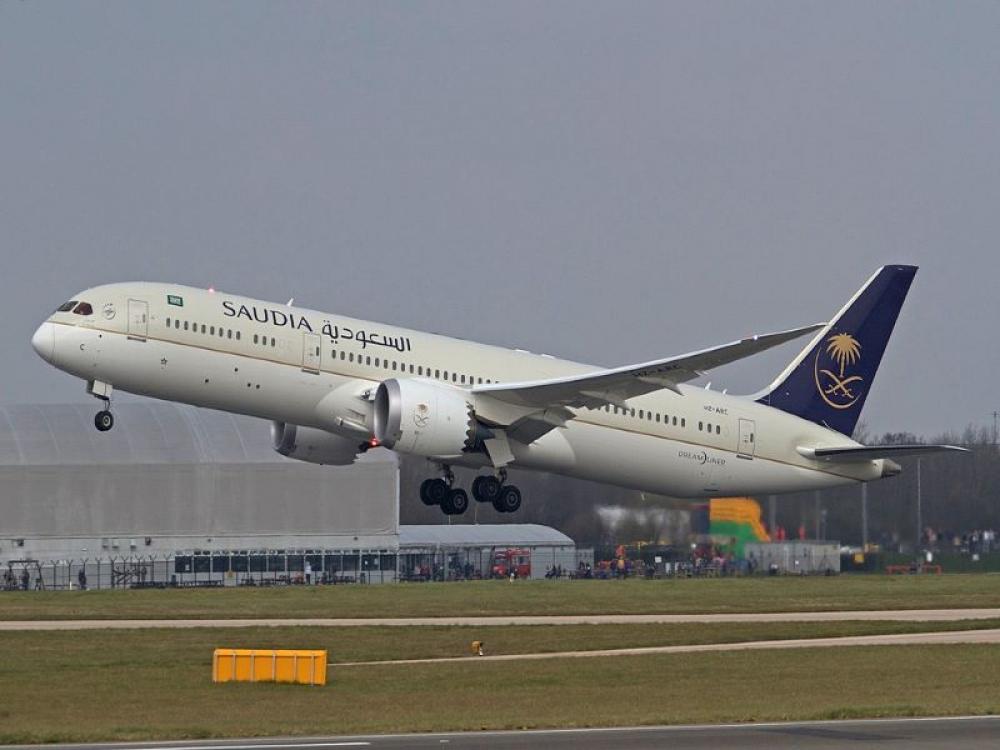Just Earth News | @justearthnews | 30 Jun 2021, 06:32 am Print
 Saudi Arabia
Saudi Arabia Image Credit: wikipedia.org
Riyadh: Saudi Arabia crown prince Mohammed bin Salman has announced the plans to launch a new national airline in order to implement a broader strategy to turn the kingdom into a global logistics hub as it works to diversify from oil, said media reports.
The launch of a second national carrier would push Saudi Arabia to fifth position globally in terms of air transit traffic, official state media reported, without revealing details on the timeline of the launch and how the airline would be created, reported AL Jazeera.
The number of international destinations from Saudi Arabia will increase to more than 250 and air cargo capacity to more than 4.5 million tonnes, double the current capacity, state news agency SPA said, according to the report.
Making the kingdom a global logistics hub includes the development of ports, rail and road networks, would increase the transport and logistics sector’s contribution to gross domestic product to 10 percent from six percent, SPA said, it added.
“The comprehensive strategy aims to position Saudi Arabia as a global logistics hub connecting the three continents,” the crown prince was quoted as saying in the SPA report, it said
“This will help other sectors like tourism, Hajj and Umrah to achieve their national targets.”
Saudi Arabia has one of the smallest airline networks in the region relative to its size.
Apart from state-owned Saudi Arabian Airlines, the other carriers in the Kingdom are low-cost carrier Flyadeal, owned by Saudi Arabian Airlines, and Flynas, owned by Prince Alwaleed bin Talal Al Saud’s Kingdom Holding, the report informed.
Crown Prince Mohammed has been pushing for diversification of the oil heavy Saudi Arabian economy to boost revenue from non-oil sectors to about 45 billion riyals ($12bn) by 2030.
- Coding at risk? Anthropic CEO Dario Amodei says human-centric roles may last longer
- Amazon’s mega office in Bengaluru is here. See all details
- Why is Nissan recalling 640000 vehicles? Check all details
- Microsoft appoints Asha Sharma as Gaming CEO. Who is she?
- Is your screen job about to vanish? Top AI expert warns that the shift has already begun





-1763561110.jpg)
